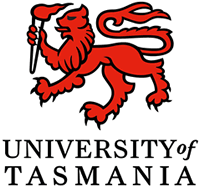About the Project
The University of Tasmania has a long and distinguished history of innovation and research excellence.
Building on our distinctive island environment and intellectual capacity to solve global challenges, we have cemented a position within the top 2% of research institutions worldwide.
The College of Science and Engineering, School of Technology, Environments and Design, is offering a 3-year fully funded PhD scholarship for an Honours or equivalent graduate in Geography and Spatial Sciences.
This scholarship provides $27,082 per annum (2018 rate) living allowance for 3 years, with a possible 6 month extension and includes at least $1500 p.a. operational funds to support the PhD research project needs.
This PhD scholarship is jointly funded by the Australian Research Council and the University of Tasmania.
The study will be part of an Australian Research Council project “Bridging scales in remote sensing of vegetation stress” aiming at development of new remote sensing methods for mapping pre-visual stress and vegetation health at regional scales from optical Earth observations of the latest space-borne missions. The new approaches under development will use modern computer radiative transfer models in combination with measurements from unmanned aircraft systems (UAS/drones).
The PhD study will pave the way towards regular satellite monitoring of plant health across extensive and inaccessible Australian landscapes.
The successful candidate will learn how to retrieve health-indicating traits of vegetation, for instance content of photosynthetic pigment or plant water content, from spectral information of airborne and satellite images. S/he will be trained in modelling and inversions of the virtual optical remote sensing data simulated in the Discrete Anisotropic Radiative Transfer (DART) model.
As a virtual computer simulator, DART requires input parameters that could be acquired with small size unmanned aircraft systems (drones) carrying on-board various optical spectral instruments. Coupling of drone-based measurements and radiative transfer modelling will enable creation of quantitative space-borne maps derived from satellite platforms of the European Space Agency (ESA) known as Copernicus Sentinels and the future ESA Earth Explorer mission FLEX.
The following eligibility criteria apply to this scholarship:
• The scholarship is open to domestic (Australian and New Zealand) and international candidates;
• The degree must be undertaken on a full-time basis;
• Applicants must already have been awarded a First Class Honours degree or hold equivalent qualifications or relevant and substantial research experience in an appropriate domain;
• Applicants must be able to demonstrate strong analytical research and practical computer skills.
Candidates from a variety of disciplinary backgrounds (geo-information sciences/remote sensing; physics/optics; plant biology/physiology, phenotyping, agriculture & forestry) are encouraged to apply.
Knowledge and skills that will be ranked highly include:
• Practical skills in optical remote sensing image analysis and data processing software (ENVI, Erdas, Idrisi, etc.);
• Advanced computer skills in both Windows & Linux OS;
• Expertise in statistical data analyses, including advanced machine learning approaches (random forest, support vector regression,
neural networks, etc.);
• Active ability of computer scripting/programming (in Matlab and/or Python, R, IDL, BASH, etc.);
• Previous experience in vegetation radiative transfer modelling at both leaf (PROSPECT/FLUSPECT) as well as canopy level (4SAIL, DART, FLIGHT, etc.).

 Continue with Facebook
Continue with Facebook

